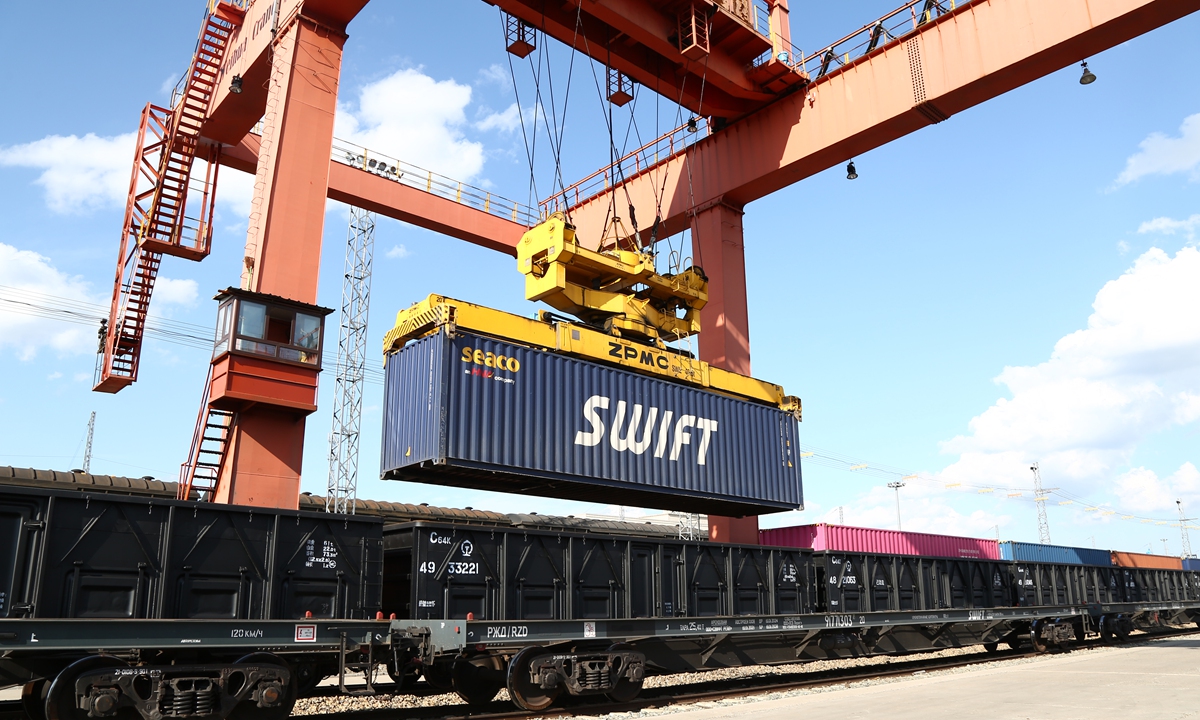
Containers are loaded onto a China-Europe freight train at Suifenhe, Northeast China's Heilongjiang Province on Thursday. Including this train, 3,000 China-Europe cargo trains have passed through the port. As of Wednesday, 291,186 containers had been exported via the port. Photo: cnsphoto
Dongning port, a land port in Northeast China's Heilongjiang Province adjacent to Russia, said it would temporarily suspend the imports of some products, including wine, candy and charcoal, starting from Sunday, in an effort to block the spread of COVID-19 through imported goods.
According to a statement on the official WeChat account of the Dongning government on Sunday, the port will postpone imports of packages weighing less than 50 kilograms. The port also suspended imports of beverages, including liquor, beer, red wine and mineral water, as well as edible oil, vegetable oil, flour and other goods starting from Sunday.
The notice pointed out that the move is local authorities' latest effort to strengthen controls at the highway port, intended to effectively block the risk of the spread of COVID-19 through the entry of imported goods.
Imports of other products are also banned, including milk powder, milk, biscuits, candy, salt, honey, chocolate, pine nuts, margarine, chopsticks, ice cream bars and charcoal.
Dongning authorities noted that the move is a temporary measure for epidemic prevention and control at the port. They will make adjustments based on the epidemic situation.
The move also comes as China's National Immigration Administration has taken steps to strengthen prevention work at border ports amid the latest flare-ups in China, including no-contact methods to receive imported goods and intensifying border patrols to crack down on illegal border crossings.
The two main threads of the recent wave started in Ejin Banner in North China's Inner Mongolia Autonomous Region and Heihe, Northeast China's Heilongjiang Province.
Mi Feng, a spokesman for the National Health Commission, said during a press conference on Saturday that the recent outbreaks across the country had entered the final stage, with more than 14 provinces reporting zero new cases for 14 days.
Mi said that local authorities still have to strengthen their prevention and control capabilities in port areas amid a global flare-up.
